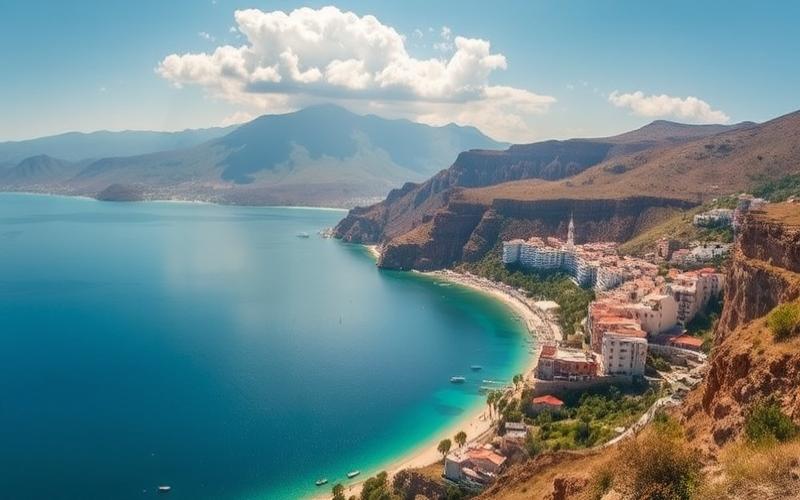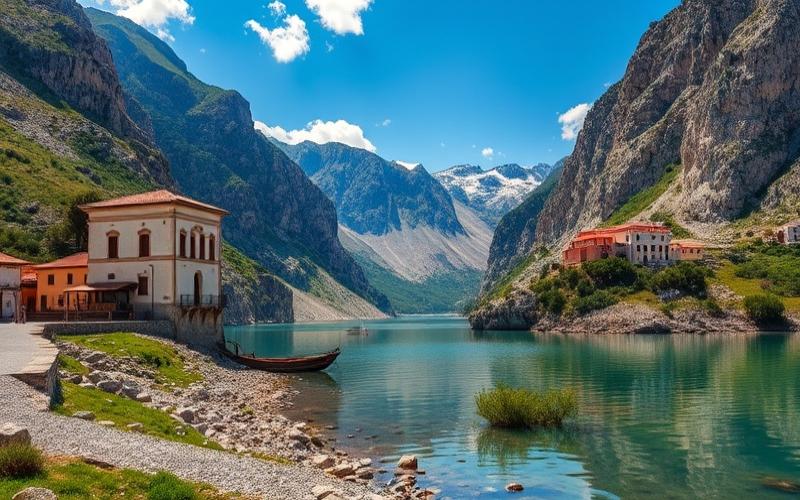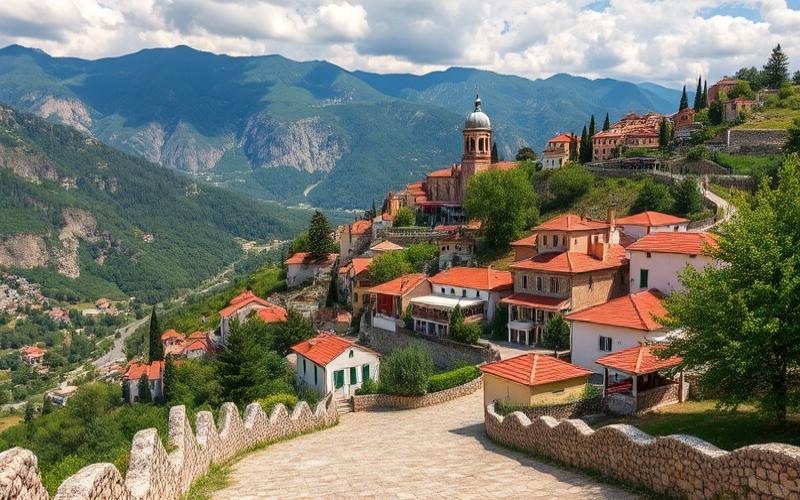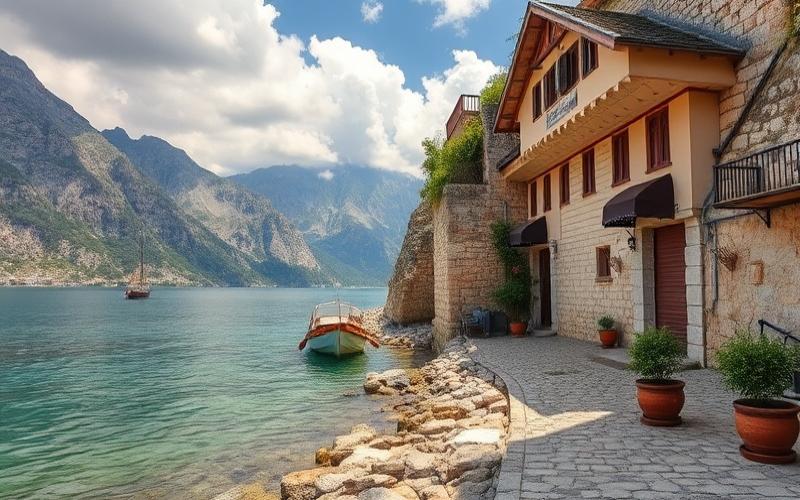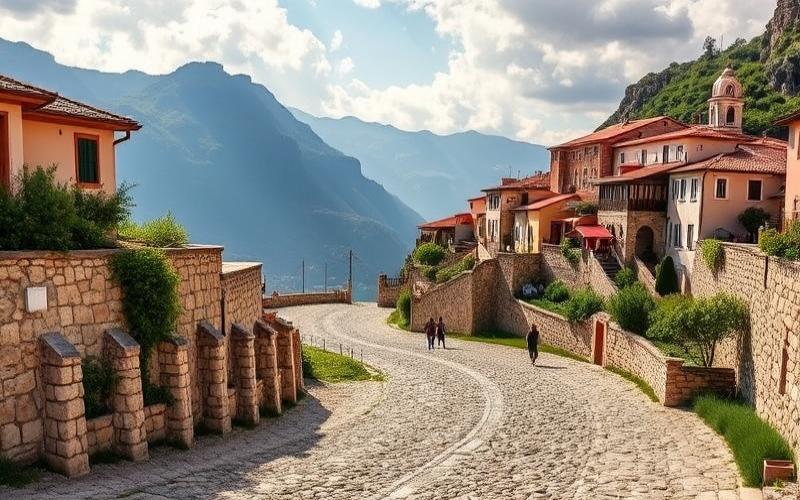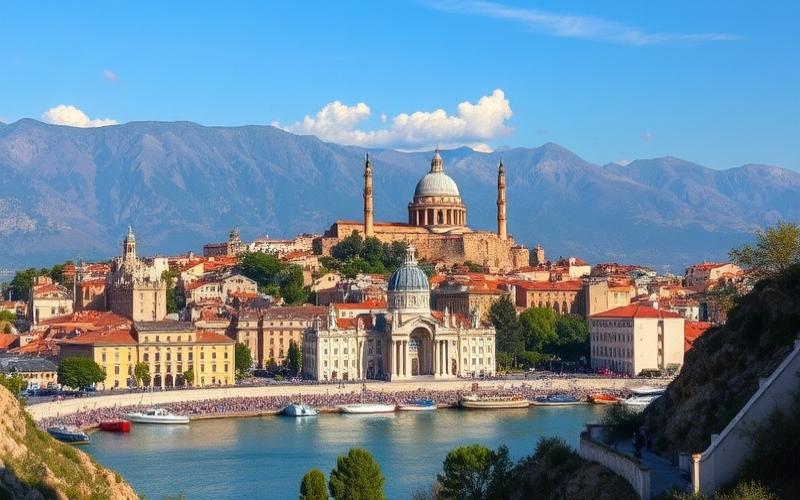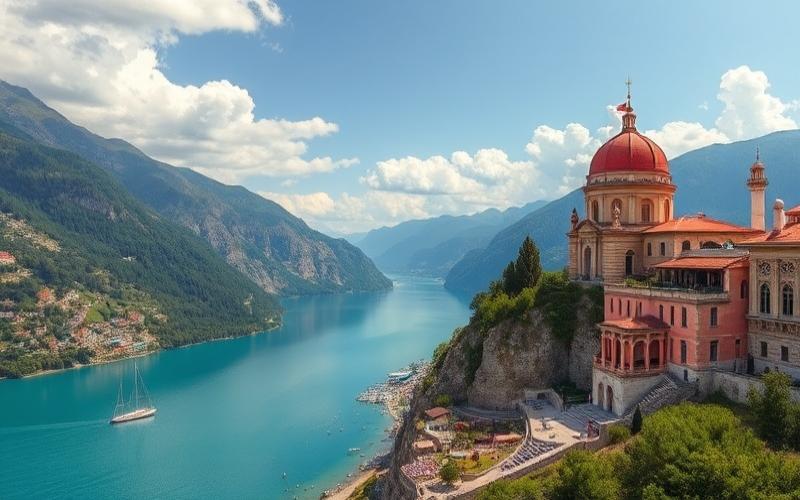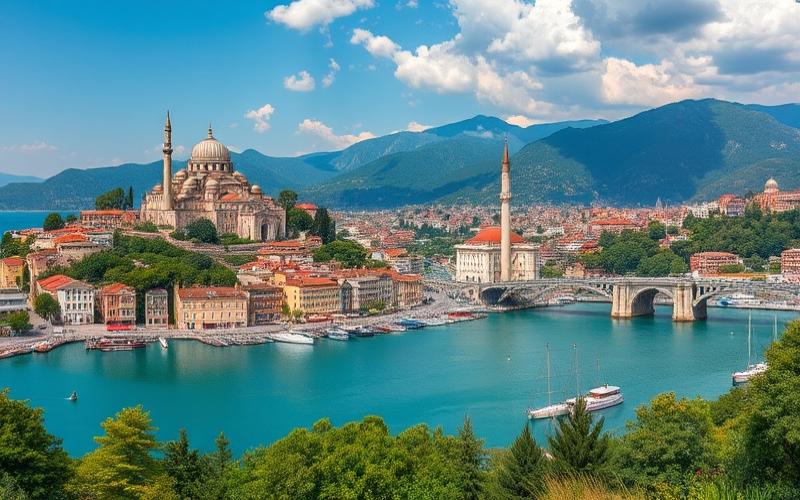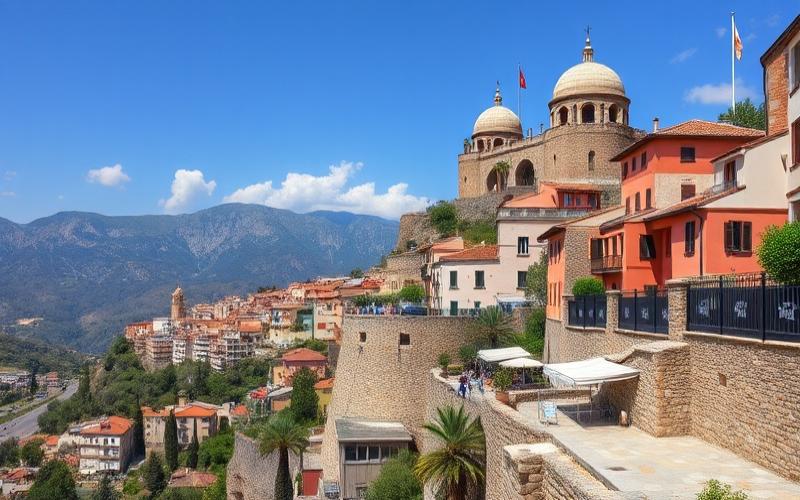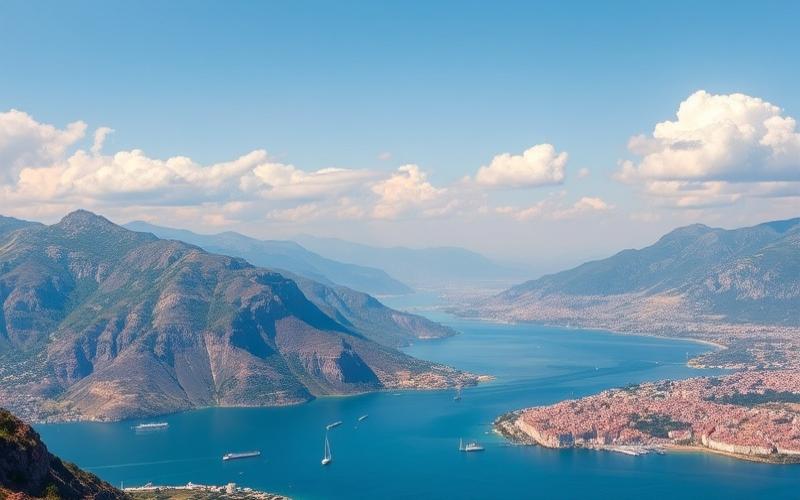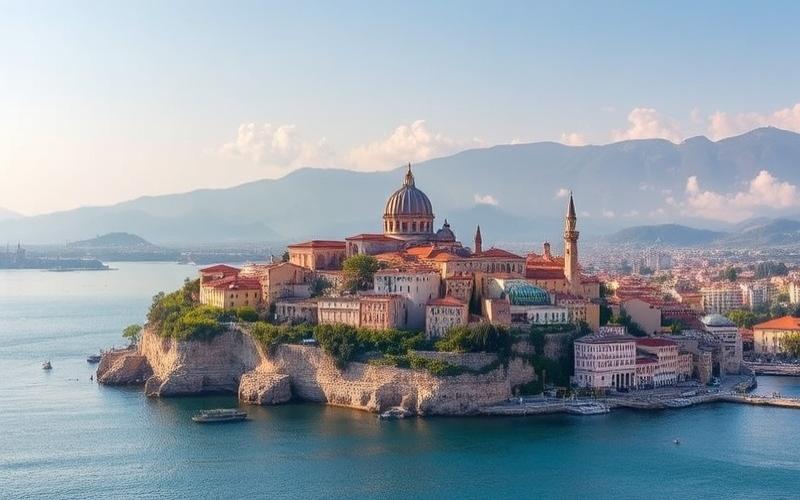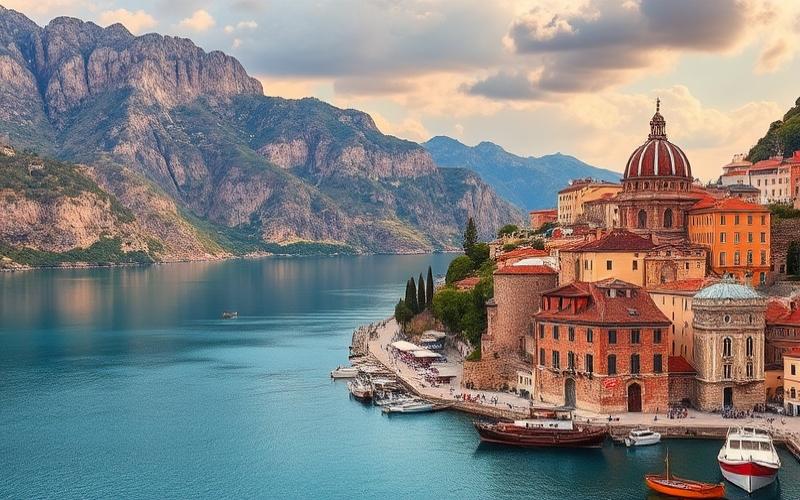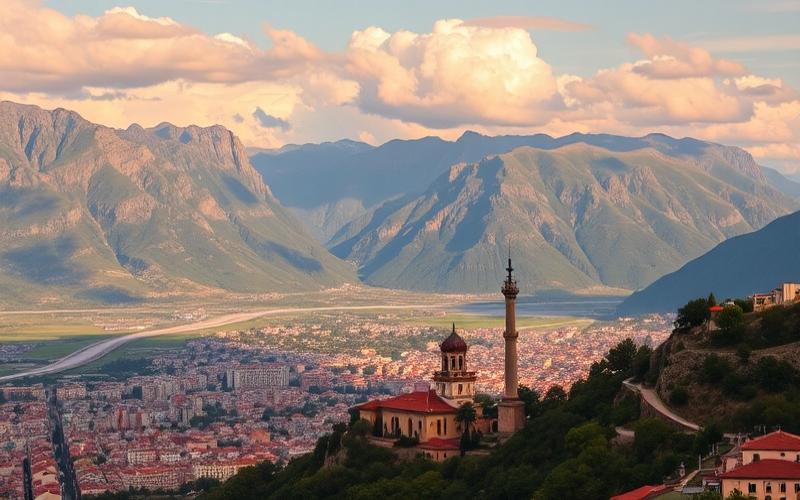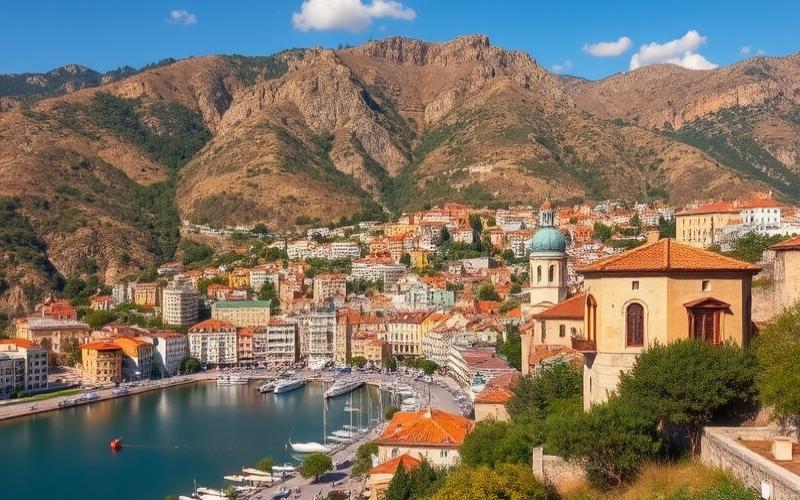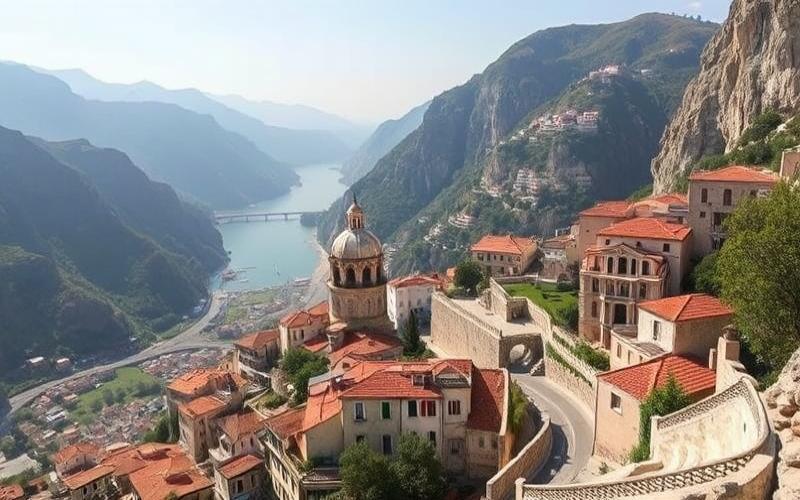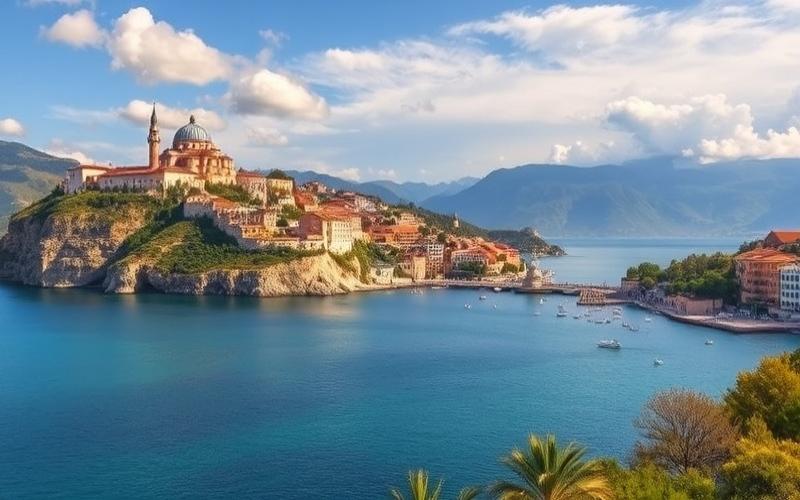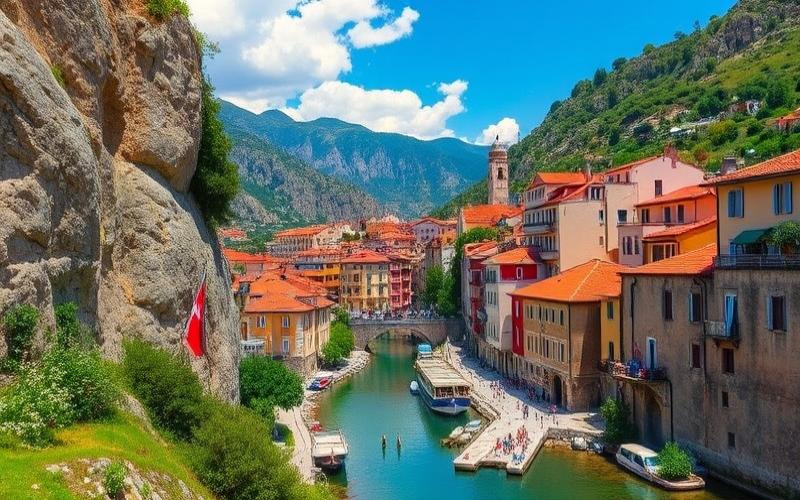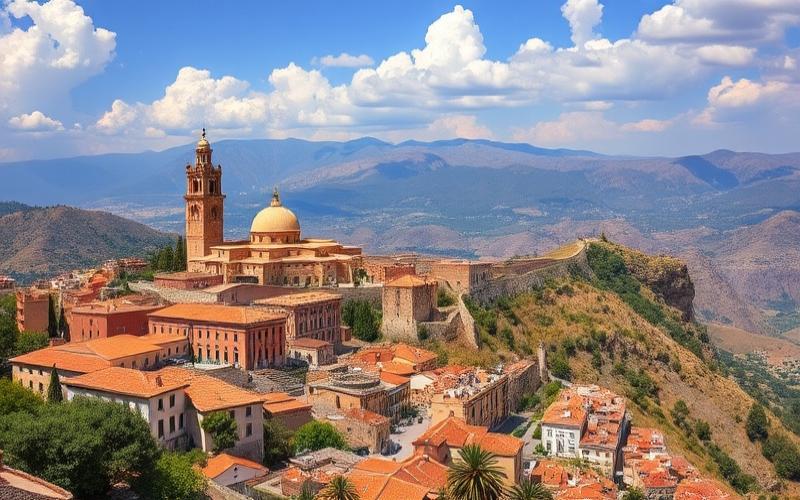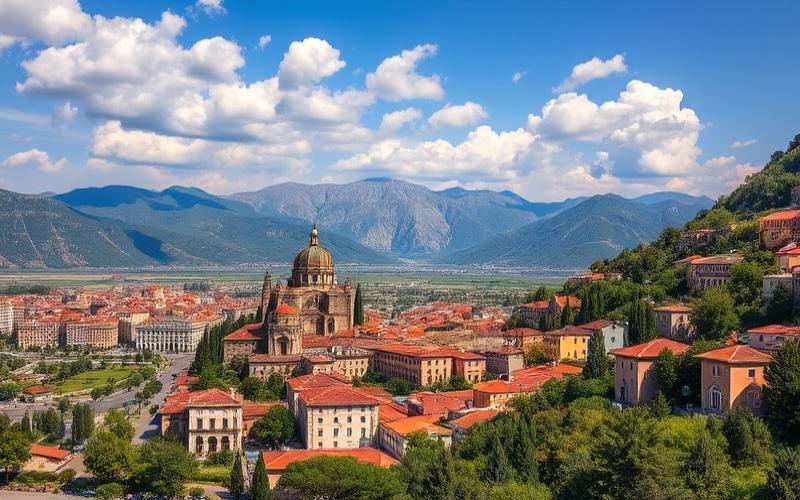
 Published on and written by Cyril Jarnias
Published on and written by Cyril Jarnias
Albania, a Balkan country with rich historical heritage and diverse landscapes, is attracting more and more expatriates drawn by its affordable cost of living and quality of life. Whether you’re attracted to the beaches of the Albanian Riviera, the majestic northern mountains, or the dynamic urban life of Tirana, settling in Albania requires a good understanding of administrative procedures. This article will guide you through the essential steps for living peacefully in this booming country.
Unlocking Albania’s Doors: Obtaining Your Visa
The first step to settling in Albania is obtaining the right visa. The process has been simplified in recent years, making the country more accessible to foreigners.
For short stays (up to 90 days): Citizens of many countries, including those from the European Union, United States, and Canada, can enter Albania visa-free for tourist stays of up to 90 days within a 180-day period. This convenience allows you to explore the country before settling permanently.
For long stays (over 90 days): If you plan to stay longer, you’ll need to obtain a Type D visa. This visa is necessary for people wishing to work, study, or settle permanently in Albania. Required documents typically include:
- A passport valid for at least 6 months after the requested visa’s expiration date
- A properly completed visa application form
- Recent passport photos
- Proof of sufficient financial means for your stay
- Health insurance valid in Albania
- Proof of accommodation (rental contract or hotel reservation)
- An invitation letter or employment contract, depending on the purpose of stay
The visa application is made at the Albanian embassy or consulate in your home country. Processing time is typically 15 business days, but it’s recommended to apply well in advance.
The Albanian e-Visa: Since 2025, Albania has implemented an electronic visa system to facilitate traveler procedures. This e-Visa is valid for stays of up to 180 days and can be obtained online, significantly simplifying the process for many expatriates.
Good to know:
The Albanian e-Visa is a quick and convenient option for medium-term stays, but for long-term settlement, a Type D visa remains necessary. Make sure you understand your needs before choosing the appropriate visa type.
A Roof Under the Albanian Sky: Finding Your Ideal Home
Once you have your visa, the next step is finding accommodation. The Albanian real estate market offers various options, from modern apartments in city centers to traditional houses in rural areas.
Short-term rental: For the first few months, many expatriates opt for short-term rentals. Platforms like Airbnb or Booking.com offer a wide range of options in major cities. This solution allows you to familiarize yourself with different neighborhoods before committing long-term.
Long-term rental: For permanent settlement, local real estate agencies are a valuable resource. They can help you navigate the rental market and understand the specifics of Albanian contracts. Rent in Albania is relatively affordable compared to other European countries, with city-center apartments starting from 300-400 euros per month in cities like Tirana.
Buying property: Purchasing real estate in Albania is possible for foreigners, but with certain restrictions. Non-residents can buy apartments without limitation, but land purchases are subject to special conditions. It’s highly recommended to hire a local lawyer to guide you through this process.
Important points to consider when searching for accommodation:
- Location: Proximity to transportation, shops, and services
- Property condition: Many older buildings may require renovations
- Utilities: Check what’s included in the rent (water, electricity, internet)
- Safety: Some neighborhoods are safer than others, ask locals for information
Good to know:
The Albanian real estate market is rapidly evolving, with many construction projects in major cities. This offers interesting opportunities but also requires caution. Don’t hesitate to visit several properties and compare offers before making a decision.
Extending Your Stay: Renewing Your Residence Permit
For those wishing to settle permanently in Albania, renewing the residence permit is a crucial step. The process has been simplified in recent years but remains an important administrative procedure.
First residence permit application: After arriving in Albania with a Type D visa, you must apply for a residence permit within 30 days. This application is made at the Regional Border and Migration Office. Required documents typically include:
- Your passport with the Type D visa
- Recent passport photos
- Proof of accommodation in Albania
- Proof of sufficient financial means
- Health insurance valid in Albania
- A criminal record certificate from your home country
Residence permit renewal: Renewal must be done at least 60 days before your current permit expires. The process is similar to the first application, but you’ll also need to provide:
- Your current residence permit
- Proof of your activity in Albania (employment contract, university registration, etc.)
- Proof of payment of taxes and fees in Albania, if applicable
Validity period: Residence permits are typically granted for one year and are renewable. After five years of continuous residence, you can apply for a permanent residence permit.
Recent changes: In 2025, Albania introduced an online system to facilitate tracking residence permit applications. This system allows expatriates to check their application status and receive important notifications.
Good to know:
Residence permit renewal can take several weeks. Start the process well in advance to avoid any issues with irregular stay. Always keep a copy of your application receipt, which proves you’re in compliance during your file processing.
Settling in Albania involves familiarizing yourself with several essential administrative procedures. Although the country has made efforts to simplify these processes, it’s important to understand them for successful integration.
Obtaining the tax identification number (NIPT): This number is crucial for many procedures in Albania, particularly for opening a bank account or signing an employment contract. To obtain it, go to the local tax office with your passport and residence permit.
Health system registration: Albania has a public healthcare system, but the quality of care can vary. It’s recommended to subscribe to complementary private health insurance. To benefit from the public system, you must register with the Institute of Social Security (ISSH) and pay monthly contributions.
Residence declaration: Within 10 days of settling in, you must declare your address to local authorities. This procedure is typically done at the police station in your neighborhood.
Driver’s license: If you plan to drive in Albania, you can use your international license for one year. Beyond that, you’ll need to exchange your license for an Albanian one or take the local exam.
Opening a bank account: With your residence permit and NIPT, you can open a bank account in Albania. Major banks offer services in English and some provide specific accounts for expatriates.
- Documents typically required:
- Passport
- Residence permit
- Tax identification number (NIPT)
- Proof of address
- Proof of income
Good to know:
Albanian bureaucracy can sometimes seem complex, but it’s constantly improving. Don’t hesitate to ask for help from already settled expatriates or use relocation services to guide you through these procedures.
Understanding Your Rights and Duties: Laws and Regulations for Foreigners in Albania
Living in Albania as a foreigner involves understanding and respecting local laws and regulations. Although the country is increasingly open to expatriates, certain specific rules apply.
Labor law: To work legally in Albania, you must obtain a work permit in addition to your residence permit. The process is typically initiated by your employer. Employment contracts must be written in Albanian, though a version in your language can be provided.
Taxation: Tax residents in Albania (those who spend more than 183 days per year in the country) are subject to tax on their worldwide income. The Albanian tax system is progressive, with rates ranging from 0% to 23%. It’s highly recommended to consult a local accountant to understand your tax obligations.
Real estate ownership: Foreigners can buy apartments without restrictions, but land purchases are subject to special conditions. Special government authorization may be necessary for certain acquisitions.
Family reunification: Residence permit holders can apply for family reunification for their spouse and minor children. This procedure requires proving sufficient income and adequate housing.
Political participation: Foreign residents in Albania don’t have the right to vote in national elections but can participate in certain local elections after a certain period of residence.
Social security: Expatriates working legally in Albania are generally covered by the local social security system. However, bilateral agreements exist with certain countries to avoid double contributions.
Education: Expatriate children have access to the Albanian public education system. There are also several international schools, mainly in Tirana, offering programs in English or other languages.
Good to know:
Laws and regulations in Albania are rapidly evolving to align with European standards. Stay informed about changes, especially if you’re considering a long-term stay or investments in the country.
Albania offers numerous opportunities for expatriates, with an attractive cost of living and appreciable quality of life. Although administrative procedures may sometimes seem complex, they’re increasingly simplified to facilitate foreigner integration. By following these tips and staying informed about legal developments, your expatriation experience in Albania will likely be enriching and successful.
Disclaimer: The information provided on this website is for informational purposes only and does not constitute financial, legal, or professional advice. We encourage you to consult qualified experts before making any investment, real estate, or expatriation decisions. Although we strive to maintain up-to-date and accurate information, we do not guarantee the completeness, accuracy, or timeliness of the proposed content. As investment and expatriation involve risks, we disclaim any liability for potential losses or damages arising from the use of this site. Your use of this site confirms your acceptance of these terms and your understanding of the associated risks.

